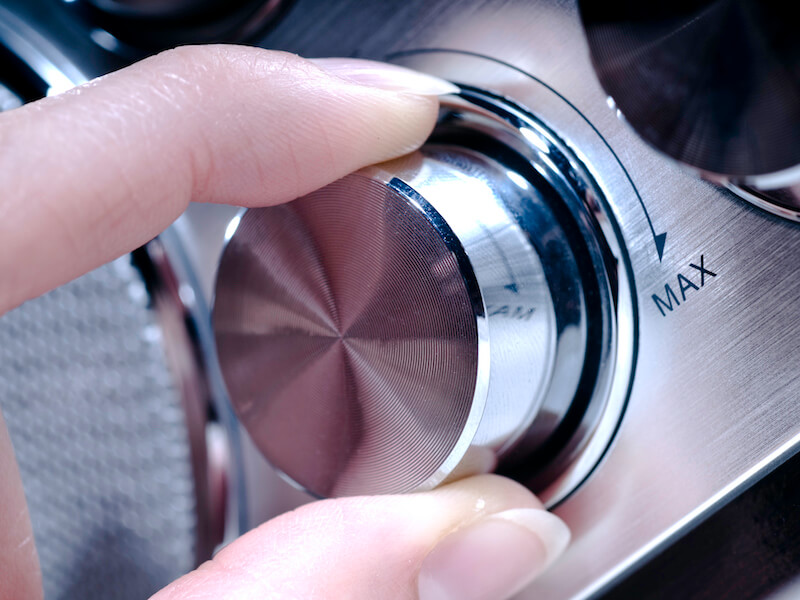
In some cases, it’s easy to identify when you require medical help. When you break a bone, for instance, you know you should go to the doctor (or the emergency room, depending on the scenario). You might need a splint or a cast or supportive device, but the thing is that you’re unlikely to try “toughing it out”. At least, not for very long (particularly if you want your bones to repair themselves correctly).
It’s not always that clear cut when it comes to hearing aids, however. Hearing loss is typically a progressive condition. That means it isn’t always easy to know when you may need to begin using hearing aids or to delay finding treatment you know could be beneficial.
That’s why it’s a good idea to keep an eye out for some distinct indicators that you might be losing your ability to communicate. It’s likely time to call us for a consultation if you do detect any.
Hearing aids and hearing loss
Hearing aids are the main form of treatment for hearing loss. But that doesn’t mean everyone who has hearing loss will immediately need a set of hearing aids. In situations where patients have very mild hearing loss, hearing aids won’t always be beneficial. We might want you to hold off on using hearing aids because of this. Likewise, you may be directed to wear hearing aids only in specific situations.
In other words, the threshold for needing hearing aids is not always a hearing loss diagnosis.
However, hearing aids will be the ideal answer in many situations. Many individuals won’t have their hearing loss diagnosed until it becomes more severe because hearing loss develops slowly and frequently goes unnoticed for a while. But if you come in to see us regularly, you might be able to catch your hearing loss early, and, because of this, you might not require hearing aids right away.
And if that’s the case, you’re most likely thinking: how can I tell if I require hearing aids?
You need hearing aids if you detect these signs
Instant communication challenges can be the result of hearing loss. But a lot of times you don’t even realize that hearing loss is the reason for those communication issues. So, when is it time for a hearing aid?
Here are a few of the common signs you should look out for:
- Phone conversations sound muffled: Even the best phone speakers tend to flatten a voice. That can make it difficult to understand, especially if you have hearing loss. It can be extremely challenging to hear voices as an outcome of the loss of these frequencies.
- You listen to the radio or TV at really loud levels: If you’re always turning up the volume on your television or radio or smartphone, it may be because of hearing loss. If you find people around you complaining about the loud volume of your devices, this is particularly true.
- When people talk, you can’t always make out what they said: Many people feel like the overall volume of life is fine so they never consider that they may have hearing loss. But hearing loss is curious, it tends to impact specific frequencies before others. Which means that the great majority of sounds could seem normal but things in the high frequencies (such as particular vowels) will be distorted. Consequently, you might have a tough time making out what people are saying to you.
- You have a difficult time hearing conversations in noisy places: This is probably one of the most common symptoms of hearing loss. If you have trouble hearing conversations in noisy places, that’s usually a sure sign that you have hearing loss. This happens because your ears are not receiving as much information as they used to, and your brain isn’t really capable of filling in the gaps very easily. Lots of conversations get muddled because of this.
So how should you deal with it?
When you break a bone, it’s obvious what to do: you go see the doctor! But what about when you experience these indications that you might need a hearing aid? What degree of hearing loss calls for hearing aids? That isn’t a really easy answer but you should schedule an appointment with us for a hearing assessment if you begin to notice any hearing loss symptoms. We’ll be able to assess the health of your hearing and ascertain just how severe your hearing loss may or may not be.
And if you do wind up needing hearing aids, a hearing exam will help determine the best device for your hearing needs. This means you’ll be able to get back to spending quality time with your friends and family, you’ll understand your grandkids when they give you a call, your co-workers at your morning meeting, and your friends at the pub.
Call us for a hearing test so we can help you improve your quality of life.
